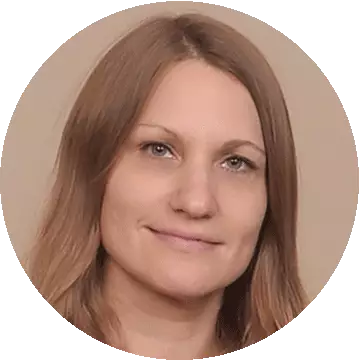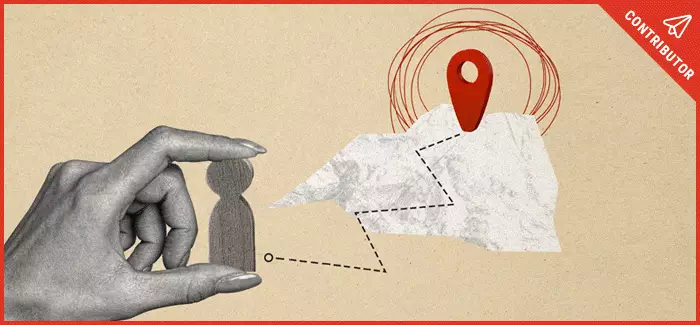Education for personal development and growth

Written by Camilla Andersson

Reviewed by Christina Neider, EdD, Dean of the College of Social and Behavioral Sciences

When you feel like you’re in a rut, it could be a sign that it’s time to focus on personal development. But how do you start the journey? One way might be through education.
Here, we’ll explore how taking courses aimed at enrichment and developing a growth mindset can help you reset your purpose and path.
The importance of education in personal growth
We often think of education as a means to an end, such as a license, degree or certificate. While these are all valuable, education also serves a less tangible purpose: to foster personal development and growth.
Personal development is a process in which you improve your skills and capabilities by engaging in activities such as courses, workshops or mentorships. This is different from self-improvement, which focuses more on bolstering qualities you’d like to develop or mitigating habits or characteristics that work against you. You might, for example, use books or techniques to strengthen your confidence if you were focused on self-improvement.
Engaging with others and finding new platforms for growth, however, can often take you further than self-improvement alone.
“When we talk about taking some classes for personal development, it is about growing and expanding our horizons,” says Jessica Roper, the director of Career Services at University of Phoenix. “The value of education is that it helps people see things from a different perspective. It also improves your critical thinking skills.”
This development is a process, and the result is called personal growth. Neither is finite — there is always more to learn. Growing as a person can improve both your soft and hard skills, help you find your passions and, perhaps just as importantly, increase self-esteem.
“I also see education as a means of confidence-building both personally and professionally. Taking the challenge can be really helpful for self-esteem and growth,” says Roper. In this way, personal development can also encompass self-improvement.
Taking classes at a university may boost your self-esteem in several ways, such as:
- Prioritizing your growth can strengthen your sense of self-worth, especially over time. When you achieve goals and attain new skills or experience, you may value yourself in a more positive light.
- Meeting deadlines and accomplishing goals can signal to you and others that you are capable and efficient.
- Developing a growth mindset
can be a byproduct of education, which is helpful for overcoming challenges and encouraging more opportunities for growth. A growth mindset is the belief that you can improve your abilities through your efforts. This results in greater resilience to challenges and a better capacity to learn from mistakes.
John Marszalek, PhD, is a full-time faculty member at University of Phoenix. He says new students in his counseling courses are often unfamiliar with the concept of a growth mindset, leading them to doubt their capabilities at first.
“Many students come in thinking they are not going to be successful,” he says. “They don’t know what to expect from the class or instructor. They get in, and it starts to build self-confidence and self-efficiency, and they realize that it is possible. When taking classes, not only are you learning material, you start to realize the areas you want to grow in, and you start to realize it is possible to grow in those areas.”
Taking classes to develop as a person might also lead to new skills you can implement in your career. According to Roper, the most important soft skills that many employees need to develop are communication and critical thinking.
In addition to such skill enhancement, education could expand your network of peers and mentors. This also enhances opportunities to develop soft skills for job interviews and the workplace.
Exploring educational paths for personal growth
Education offers several benefits that can help you develop as a person. As mentioned, its structured setting encompasses goals and deadlines to help develop a sense of agency and ability. The classes themselves also encourage development through the exchange of ideas during class discussions and the guidance of experienced instructors. Education may also offer practical resources like academic advisors and career centers to help students identify and pursue new opportunities.
The best part? You don’t have to commit to an entire degree or certificate program to reap these benefits. Enrolling in a single academic course , for example, can also propel change. Some examples of subjects that might encourage you to grow as a person include:
- Psychology: Understand the connections between the mind and behavior.
- Humanities: Develop critical and creative thinking, depending on the course.
- Business: Enhance business and interpersonal communication skills.
Professional development courses are another option to consider if you’re seeking personal development. Some employers see the value in this as well, which is why certain organizations pay for employees to take professional development classes and may even tailor a program to their employees’ workplace needs.
If you find classes that you think are interesting and might also help you in the workplace, find out if your employer has a budget for professional development classes. Examples of such classes include human resources, leadership development, and diversity, equity, inclusion and belonging.
Academic courses, whether individually taken or approached as part of a degree program, can form a strong foundation for additional resources, such as mentorships, conferences and volunteer opportunities.
Ultimately, developing as a person should be a lifelong goal. Going back to school can kick-start this process by helping you determine what motivates you and what you’re passionate about.
“I think that it is so important to follow your passion,” says Marszalek. “As you learn new material, pay attention to things you learn that really grab you and that really connect with you. It can be great information because it can help you make decisions on where you want to go from there.”
Practical tips for incorporating education into your plan for growth
To get started on your journey of growth, create a plan for what you want to accomplish, when and how. Consider the following steps:
1. Establish your goals. Be as detailed as possible. Do you need to learn specific professional skills? Obtain a license? Improve soft skills such as communication or time management?
2. Determine which classes will help you meet these goals. Are there courses that can help you reach several of your goals at the same time?
3. Create a conducive learning environment for growth. Set aside time not only to study for specific tests and assignments but also to develop a deeper understanding of the material. Additionally, seek out opportunities to connect with your instructor and other students, whether virtually or in person.
4. Utilize university resources. Workshops, seminars, career centers and, later on, alumni associations all offer ways to continue to connect, ideate and grow.
5. Balance education with other approaches and habits. Mentorships can help you set goals and network in your industry. Beyond that, exercising, practicing mindfulness and eating well can improve your health, strengthen focus and help you manage stress.
Where can I find educational resources for personal development and intellectual growth?
Are you ready to get started on your path to personal development? Find a class that can help you on this journey. University of Phoenix has a variety of options that can help you achieve both your personal and professional goals.
Whether you want to obtain a degree or an online certificate , pursue professional development
or start with a single course, you can find it by obtaining more information
on the UOPX website.

ABOUT THE AUTHOR
Camilla Andersson is a writer with a degree in journalism. She has written and edited content for trade magazines, blogs, white papers and newsletters. Camilla lives in Los Angeles and is a graduate of San Francisco State University. She grew up in Sweden, where she published her first work, an op-ed in the newspaper Aftonbladet, at the age of 15.

ABOUT THE REVIEWER
Christina Neider is the dean of the University of Phoenix College of Social and Behavioral Sciences. Neider’s career spans more than 30 years in academia, healthcare and the U.S. Air Force. She has held several academic leadership roles at University of Phoenix, and she is the Vice President of membership for the Arizona Chapter of the Healthcare Information and Management Systems Society.
This article has been vetted by University of Phoenix's editorial advisory committee.
Read more about our editorial process.


